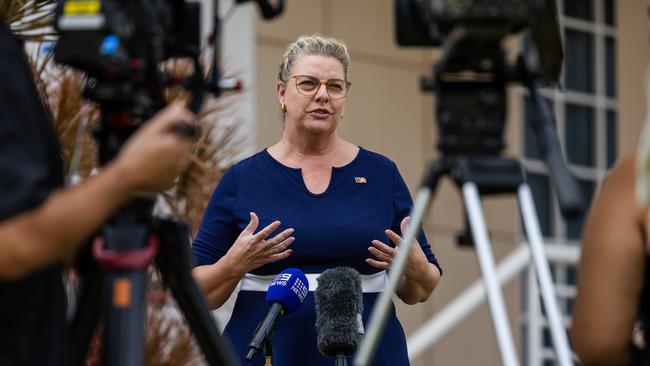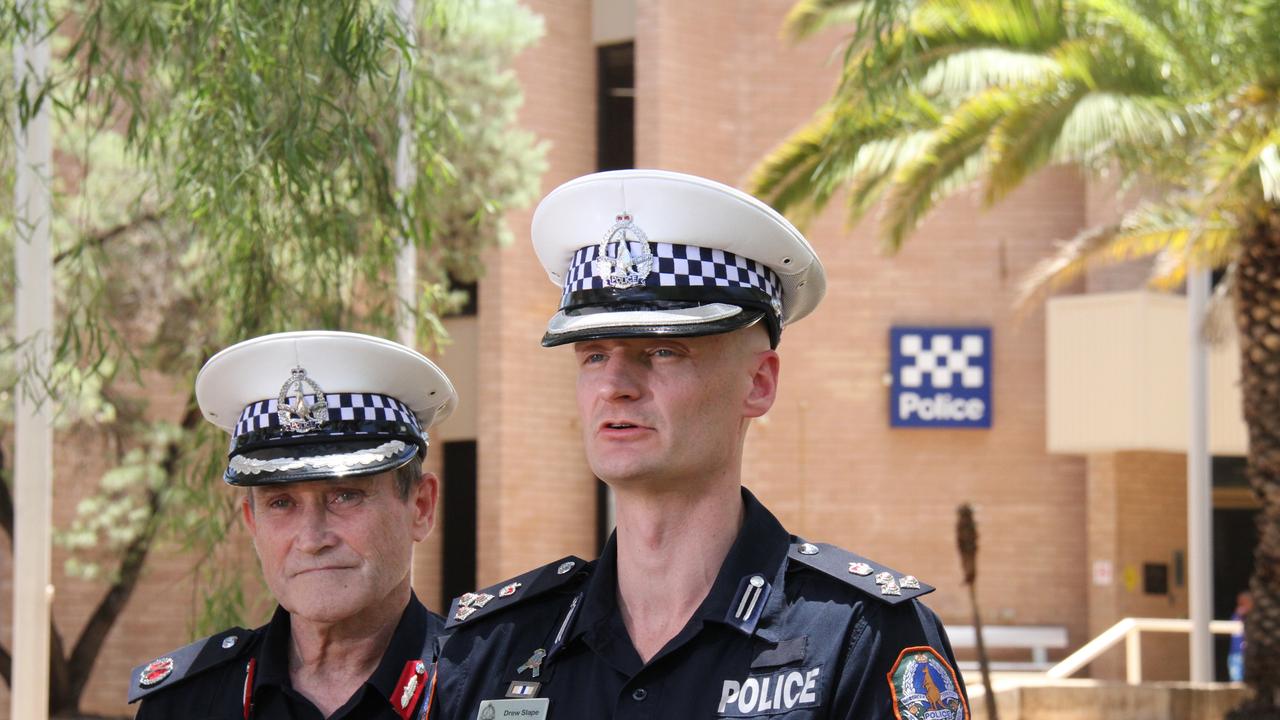NT Courts predict 18 per cent spike in cases as ‘tough on crime’ laws hit under resourced system
Experts warn that the Territory’s justice system is being placed under ‘unsustainable’ pressure, with thousands of extra cases predicted as a result of ‘tough on crime’ reforms. SEE THE DATA

News
Don't miss out on the headlines from News. Followed categories will be added to My News.
Territory courts are bracing for a record-breaking number of cases after tough on crime reforms put an ‘unsustainable’ pressure on the justice system.
The NT Courts has revealed it is expecting more than 22,000 criminal and domestic violence cases by the end of the 2024-25 financial year, an additional 3394 cases compared to 2023-24.
The new data released on Thursday predicts an 18 per cent increase in lodgements compared to the previous 12 months — breaking a decade-long record for the lower courts.
The predicted spike in cases comes as the Darwin and Alice Springs courts face a number of operational difficulties due to high arrest rates, limited cell capacity, court, legal and corrections understaffing and the roll out of legislative reforms, known as ‘Declan’s Law’.
Attorney-General Marie-Clare Boothby has blamed the former government for the court pressure in the 2024-25 financial year, despite only 55 days of that period being under Labor.
“The increased demand on the court system was expected due to our government’s stronger laws, which are keeping 500 more (alleged) offenders off the streets and preventing further crimes in our community,” Ms Boothby said.
The court data predicts that by the end of June more than 40,000 criminal offences would have been brought before the courts, 4761 more than in the previous financial year.

Despite the spike in cases, the local court has managed to stabilise the backlog with no change to the pending workload in January 2025, compared to the previous year.
However this comes after three years of rising backlog figures — with 9203 cases yet to be resolved — and only 70 per cent of local court criminal matters finalised within six months.
Law Society of the Northern Territory President Richard Henschke said the pressures on lawyers, judges and court staff was unsustainable.
Mr Henschke said the system was “in danger of failing completely”, as the government’s new ‘tough on crime’ laws added even more pressure to the already overburdened courts.
“The Law Society remains concerned at the impact on the health and wellbeing of legal practitioners, the judiciary and court staff who are dealing with the effects of this on a daily basis,” he said.
“Clearly there will come a point when it will be difficult for the courts, legal practitioners and all others involved to continue to maintain this level of pressure.”
In their latest annual reports Legal Aid NT and the Director of Public Prosecutions flagged serious concerns about ability to meet rising court pressure, while the North Australian Aboriginal Justice Agency revealed a record numbers of calls to its custody notification service in December.
Ms Boothby said in response she had lifted the cap on prisoners held in court cells, expanded Darwin and Alice court capacity by allowing two bail and arrest courts to run simultaneously, and appointed three new acting judges, Sally Ozolins, Steve Ledek and Giles O’Brien-Hartcher.
She said there had been a lack of investment in the courts and prisons, stating “for every dollar invested in policing, at least $1.50 should be directed towards the justice system and corrections”.
“Labor failed to invest and make needed changes in our courts system, so now we’re tackling the challenges,” she said.
“Recognising the pressure on legal services, we have committed an additional $5.235 million in funding for Legal Aid this year – because real reform means properly resourcing our justice system.”
But in November Ms Boothby revealed that the Legal Aid NT funding boost was not new money to the Attorney-General’s Department, with cash to be “reprioritised” from other “buckets of money”.
More Coverage
Originally published as NT Courts predict 18 per cent spike in cases as ‘tough on crime’ laws hit under resourced system





